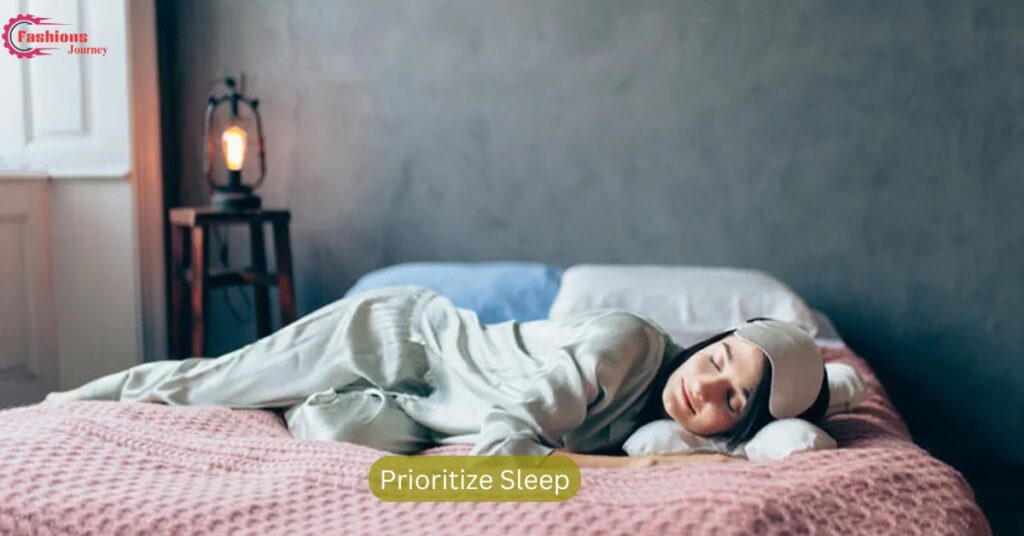Sometimes school can be really hard. You might feel worried if you’re not doing well in your classes. It’s normal to feel scared or sad about bad grades. These feelings might make it hard to sleep at night.
But it’s important to remember that everyone struggles sometimes. Failing a class doesn’t mean you’re a bad person. It just means you need some help. Talk to your teachers or your parents. They can help you make a plan to do better. This can help you feel less worried when you go to bed.
Try to relax before bedtime. Read a fun book or listen to calm music. Remember that tomorrow is a new day. You can always try your best again. With some help and hard work, you can improve. Knowing this might help you sleep better at night.
Acceptance and Acknowledgement

The first step is acceptance. It’s crucial to acknowledge your situation. Denying the reality won’t help. It will only make things worse. Face your academic struggles head-on. Recognize that you’re having difficulties. This doesn’t make you a failure as a person. It simply means you’re facing challenges right now.
Acknowledging your feelings is important too. It’s okay to feel frustrated. It’s normal to feel disappointed. These emotions are valid. Don’t try to suppress them. Instead, allow yourself to experience them. Process these feelings. This will help you move past them. It will clear your mind for better sleep.
Self-awareness is key in this process. Reflect on your academic journey. What factors have contributed to your current situation? Is it a lack of study skills? Time management issues? Personal problems? Identifying the root causes can help you address them.
Read This Blog:Three Reasons The PS5 Star Wars: KOTOR Remake Is Such A Huge Deal For Fans
Establish a Routine
A solid routine is crucial for good sleep. Especially when you’re dealing with academic stress. Consistency is key. Try to go to bed at the same time each night. Wake up at the same time each morning. Even on weekends. This helps regulate your body’s internal clock. It makes falling asleep easier. It improves sleep quality too.
Create a bedtime ritual. This signals to your body that it’s time to wind down. It could include reading a book. Taking a warm bath. Listening to calming music. Find what works for you. Stick to it consistently. Your body will learn to associate these activities with sleep. It will start to relax automatically.
Avoid stimulating activities before bed. No intense studying late at night. No cramming sessions. These activities can increase anxiety. They can make it harder to fall asleep. Instead, do something calming. Something that helps you relax.
Manage Your Stress
Stress management is crucial when you’re failing classes. High stress levels can make it hard to sleep. They can worsen your academic performance too. It’s a vicious cycle. Breaking this cycle is essential for your well-being. For your academic recovery.
Meditation can be a powerful tool. It can help calm your mind. It can reduce anxiety. Even a few minutes of meditation before bed can make a difference. There are many apps and online resources to guide you. Find a method that works for you. Practice it regularly.
Deep breathing exercises can also help. They can lower your heart rate. They can reduce tension in your body. Try the 4-7-8 technique. Inhale for 4 seconds. Hold for 7 seconds. Exhale for 8 seconds. Repeat this several times. It can help you relax before sleep.
Read This Blog:Kelsey Kane Gym: 5 Reasons You’ll Love a Day Here
Focus on What You Can Control

When you’re failing classes, it’s easy to feel helpless. To feel like everything is spiraling out of control. But there’s always something you can control. Focusing on these aspects can help you regain a sense of power. It can reduce anxiety. It can improve your sleep.
Start with your study habits. You can control how you approach your coursework. Create a study schedule. Stick to it. Set aside specific times for each subject. Be consistent. This structure can make your workload feel more manageable. It can reduce the anxiety that keeps you up at night.
Set realistic goals. Don’t aim for perfection right away. That’s unrealistic and can lead to more stress. Instead, focus on improvement. Set small, achievable goals. Celebrate when you reach them. This can boost your confidence. It can motivate you to keep going.
Seek Help and Support
Reaching out for help is not a sign of weakness. It’s a sign of strength. Of self-awareness. When you’re struggling academically, support can make a big difference. It can ease your worries. It can improve your sleep. It can help you get back on track.
Talk to your professors. They want you to succeed. Explain your situation. Ask for guidance. They may offer extra help. Extended deadlines. Study resources. This support can ease your academic stress. It can make your goals feel more achievable. It can help you sleep better at night.
Consider tutoring. A tutor can provide personalized help. They can explain difficult concepts. Help you develop better study skills. This extra support can boost your confidence. It can reduce the anxiety that keeps you awake at night. Many schools offer free tutoring services. Take advantage of them.
Practice Self-Compassion

Self-compassion is crucial when you’re facing academic struggles. It’s easy to be hard on yourself. To engage in negative self-talk. But this only increases stress. It makes it harder to sleep. To improve. Instead, practice being kind to yourself. Treat yourself with the same compassion you’d offer a friend.
Recognize that everyone faces challenges. Academic struggles are common. You’re not alone in this. Many successful people have failed classes at some point. It doesn’t define you. It’s a temporary situation. This perspective can ease your mind. It can help you sleep better.
Avoid harsh self-criticism. Negative self-talk can increase anxiety. It can make it harder to sleep. To focus. Instead, use encouraging words. Motivate yourself positively. Remind yourself of your strengths. Your past successes. This positive mindset can improve your mood. Your sleep quality.
Prioritize Sleep

Sleep is crucial for academic success. It’s not a luxury. It’s a necessity. When you’re failing classes, it might be tempting to sacrifice sleep. To study more. But this is counterproductive. Lack of sleep can worsen your academic performance. It can increase stress. Anxiety. Prioritizing sleep can actually help you perform better.
Create a sleep-friendly environment. Make your bedroom dark. Quiet. Cool. Use comfortable bedding. These factors can significantly improve your sleep quality. They can help you fall asleep faster. Stay asleep longer. Wake up feeling more refreshed.
Limit screen time before bed. The blue light from screens can interfere with your sleep cycle. It can make it harder to fall asleep. Try to avoid screens for at least an hour before bedtime. If you must use screens, use blue light filters. They can reduce the impact on your sleep.
FAQ’s
How can I stop worrying about my grades when trying to sleep?
Practice mindfulness techniques. Focus on your breathing. Use relaxation exercises. Remind yourself that worrying won’t change your grades. Action during the day will.
Is it okay to take naps during the day if I’m not sleeping well at night?
Short naps (20-30 minutes) can be beneficial. They can improve alertness. But avoid long naps. They can interfere with nighttime sleep.
How can I balance studying and getting enough sleep?
Create a schedule. Prioritize important tasks. Take regular breaks. Set a consistent bedtime. Remember, quality study time is more effective than quantity.
What should I do if I can’t fall asleep because of academic stress?
Get out of bed. Do a calming activity until you feel sleepy. Avoid screens. Try reading or listening to soft music. Return to bed when you feel drowsy.
How can I improve my sleep quality when I’m struggling academically?
Establish a consistent sleep routine. Create a sleep-friendly environment. Practice stress-management techniques. Seek support for your academic challenges.
Conclusion
Sleeping well while facing academic struggles is challenging. But it’s not impossible. It requires effort. Consistency. A willingness to seek help. To practice self-compassion. Remember, your academic performance doesn’t define you. It’s a part of your journey. Not your destination.
Prioritize your well-being. Your sleep. Your mental health. These are foundations for academic success. For personal growth. Implement the strategies discussed in this article. Be patient with yourself. Improvement takes time. But with persistence, you can improve both your sleep and your academic performance.
Remember, you’re not alone in this struggle. Many students face similar challenges. Reach out for support. To professors. Tutors. Counselors. Friends and family. Their support can make a significant difference. It can help you navigate this challenging time. It can help you sleep better at night. Even when you’re struggling academically.

Liam Patel is a passionate fashion enthusiast with a keen eye for style trends.
With a background in textile design and years of experience in the fashion industry, Liam brings a unique perspective to his writing. He loves exploring sustainable fashion and street style.








